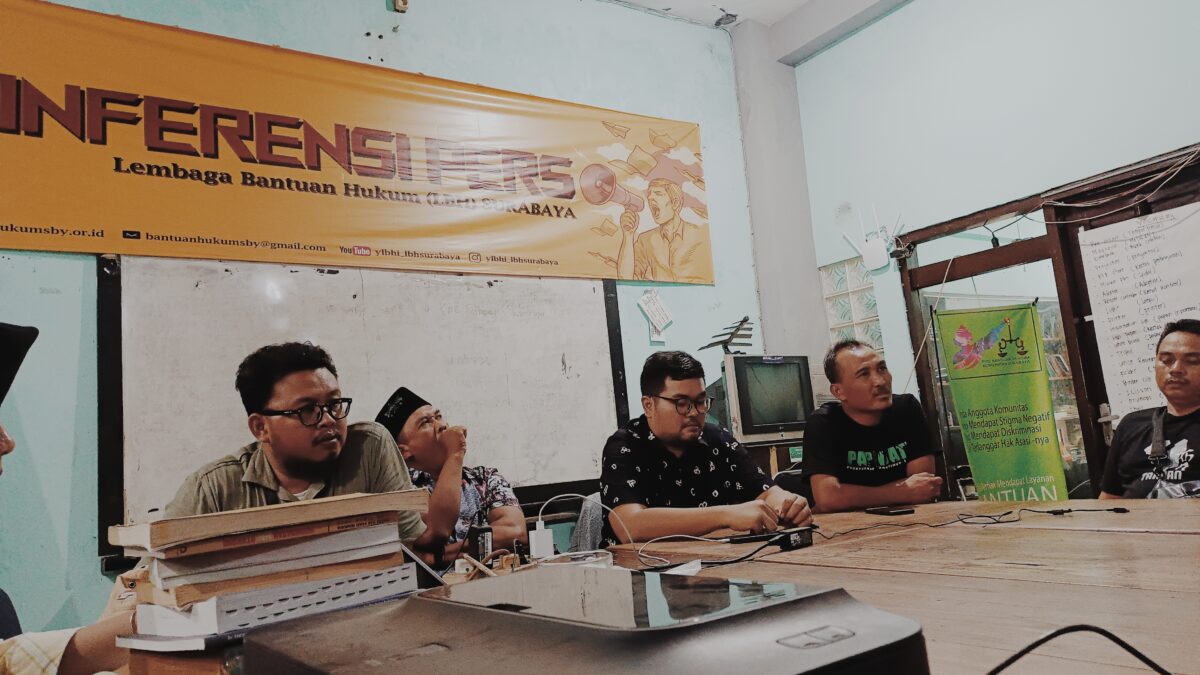There are currently 50 land dispute cases in East Java, half of which has lead to violence and citizens being criminalized and intimidated.
Today, agrarian conflicts are still rampant in Indonesia, especially in East Java. In commemoration of National Farmers’ Day, civil society and non-governmental organizations in East Java urged the government to defend its citizens in agrarian conflicts.
This message was underlined by East Java Farmers Group (PAPANJATI), Wongsorejo Banyuwangi Farmers Organization (OPWB), East Java chapter of the Indonesian Forum for Environment (WALHI), and Surabaya Legal Aid Institute (LBH) in a press conference at LBH Surabaya office on Wednesday, 27 September 2023.
They believe that many agrarian conflicts still occur today due to the absence of political will from the government to carry out the mandate of the Principal Agrarian Law. This 63-year-old law was born to expel colonialism and prosper the Indonesian people.
Meanwhile, conflicts are often followed by victims falling due to intimidation, violence, and criminalization.
The emergence of Presidential Regulation No. 88/2017 on Settlement of Land Tenure in Forest Areas, according to them, has not produced a solution. Inequality in land tenure, land evictions, violence, and criminalization are still threatening farmers.
“Instead of being just, the state seems to be the mastermind behind the continuous fall of farmers and civilians into the abyss of inequality,” said Wahyu Eka, director of WALHI East Java.
“In almost all places that experience agrarian conflicts, there are always acts of violence and intimidation by the authorities, thugs, and among the residents themselves.”
WALHI said that there are around 50 cases of agrarian conflicts – in plantations, forests, livestock, mines, and even in national strategic projects – currently occurring in various districts in East Java.
Almost half of these cases, according to Wahyu, lead to 30 cases of criminalization, intimidation, and violence.
Jauhar Kurniawan, a member of LBH Surabaya, highlighted the historical side of the community or farmers who lived on land but were displaced by the government’s legal narrative.
“Often the government uses formal legal narratives to legitimize land ownership only to protect the rights of certain formations. This is so that people who do not have access to land documents are sidelined and result in evictions,” said Kurniawan.
The group also pointed out that the Job Creation/Omnibus Law only worsened agrarian conflicts. The law is believed to have opened up a fresh pattern of land grabbing under the pretext of investment, as happened in Banyuwangi District.
There are currently two major land-related cases in the district. The first is a conflict over the Cultivation Rights and Title (HGU) of a plantation in Pakel Village, Licin Subdistrict.
The second is residents of Alasbuluh Village and Wongsorejo Village in Wongsorejo Subdistrict. Their land rights have not been recognized since the HGU ended. On the said land, an industrial area is planned to be built.
“[We are] disappointed that the government has not been present for the welfare of its people in agrarian cases, especially in Banyuwangi district,” said Arna Dwi, a representative of OPWB.
CSOs and NGOs hope that Farmers’ Day on September 24, 2023, can encourage all stakeholders to move, speak out, and convey to government officials to carry out the constitutional mandate, encourage the implementation of the Principal Agrarian Law, and immediately resolve agrarian conflicts.
“What does independence mean if we live in our villages without peace and security, like in the colonial era,” said Yanto Subandio, chairman of PAPANJATI.
